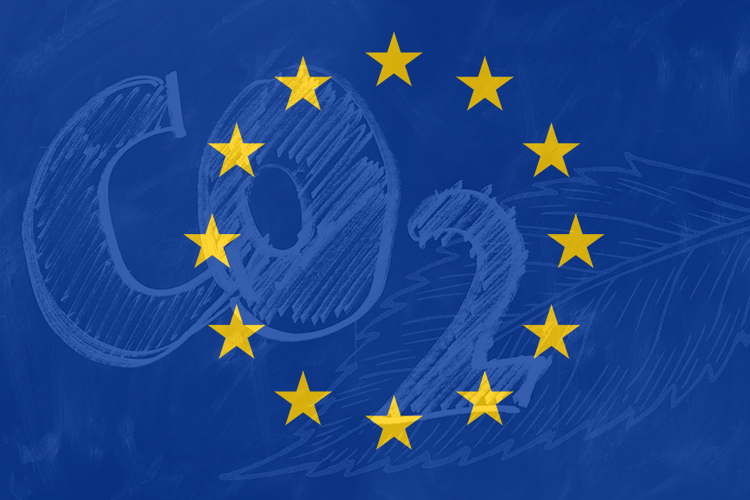European car lobby questions CO2 targets due to Covid-19
A coalition of European car lobby groups made up of manufacturers, suppliers, tyre manufacturers and dealers has written to the EU Commission requesting a relaxation of the schedule for vehicle CO2 targets against the background of the Corona crisis. At the same time, German manufacturers Volkswagen, Daimler and BMW emphasised that they want to retain the original CO2 limits.
In the letter to the EU Commission, four of Europe’s largest car lobby groups “request the opportunity to discuss with you the implications of the current COVID‐19 crisis on the automotive sector and the measures that the European Commission could potentially take in this respect.”
The letter argues that due to the current production halt, the CO2 regulations and the impending fines may not be met, writing that “No production, development, testing or homologation work occurs for the time being.” They argue that this upsets their electrification plans and therefore conclude: “We believe therefore that some adjustment would need to be made to the timing of these laws.”
The groups call for extra conditions to be considered beyond the initiatives already announced by both the European Central Bank and the European Investment Bank, as well as the Stability and Growth Pact proposal to direct €37 billion under EU cohesion policy specifically to address the impact of the Coronavirus.
“However, we assure you that we do not wish to call into question the laws as such, nor the underlying objectives of road safety, climate protection and environmental protection,” the letter elaborates.
At the request of Automobilwoche, neither the VDA nor ACEA, two of the four lobby groups penning request wanted to comment on the matter. VDIK President Reinhard Zirpel told the newspaper that it was still “much too early to make a forecast”. However, he speculated that the crisis could change the model mix away from electric cars.
Meanwhile, German manufacturers Volkswagen, Daimler and BMW have emphasized that they want to keep to the CO2 limits unchanged. The non-governmental organisation Transport & Environment say that “such a plea is currently unfounded”, saying that changing the targets would more likely damage the long-term sustainability and competitiveness of the automotive industry in Europe.
Existing targets mean that in 2020, 95 per cent of new car sales must be below the target of 95 grams of CO2 per kilometre on average, and then 100 per cent for 2021. “Falling car sales, therefore, do not automatically affect compliance,” writes T&E. “Compliance would be affected if the type of vehicle sold changes, not the actual number.”
Against the backdrop of current market developments, T&E estimates that sales of electric cars – despite the announced premieres of important models such as the VW ID.3 and Fiat 500 – will be lower in quarters 2 to 4. Despite this, “Even without new models, first-quarter sales were already at the upper limit of what car manufacturers need to meet compliance targets. These zero-emission vehicle sales will make a significant contribution to achieving the CO2 targets in 2020”. The EV share in Europe is expected to run between three and seven per cent this year.
Julia Poliscanova, clean vehicle director with sustainable transport research and campaign group at T&E concluded: “Any incentives to boost demand once normal life resumes should be targeted at zero-emissions cars. This will help keep jobs in Europe, curb pollution and boost the competitiveness of our car industry.”
www.acea.be (lobby letter to the EU Commission), transportenvironment.org, automobilwoche.org (in German)





0 Comments